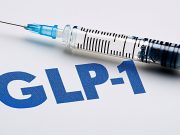Tag: ISKF
Cardiovascular Health in Young Adulthood Tied to Outcomes 35 Years Later
Unfavorable patterns of change in cardiovascular health during young adulthood tied to marked elevations in risk for later cardiovascular disease
Factors Linked to Risk for Sudden Unexpected Death in Epilepsy Identified
Risk increased with living alone, three or more generalized convulsive seizures in the previous year, longer postictal central apnea
GLP-1 Receptor Agonists Tied to Reduced Mortality in Patients With Psoriasis
Risk reductions stronger in those with psoriasis versus those with obesity or type 2 diabetes without psoriasis
Natural Language Processing Algorithms Can ID High-Risk Childhood Asthma Subgroup
Pneumonia, influenza A/B, and asthma exacerbation risks highest in those positive for both Predetermined Asthma Criteria and Asthma Predictive Index
Nonoptimal Levels of Traditional Risk Factors Almost Universal Before CVD
In both men and women, prevalence of one or more traditional risk factor before CVD was >99 percent across age groups
Diabetes Tied to Doubled Risk for Sepsis
Smoking, high blood sugar, and other chronic conditions heighten risk
Only 36.4 Percent of U.S. Adults Had No CVD Risk Factors in Recent Years
Higher percentage of men than women had two or more CVD risk factors; more older adults had risk factors
Model Based on Mammogram Features, Age Can Predict CV Risk
DeepSurv model using mammography features and age has similar performance to modern models
Stroke Risk May Increase With Hysterectomy, Bilateral Oophorectomy
Significantly higher stroke risk seen in meta-analysis of 2,065,490 participants from NHANES and 15 other studies
hsCRP Can ID Cardiovascular Risk in Women Without Modifiable Risk Factors
High levels of hsCRP indicates risk in women without any of the four standard modifiable cardiovascular risk factors














